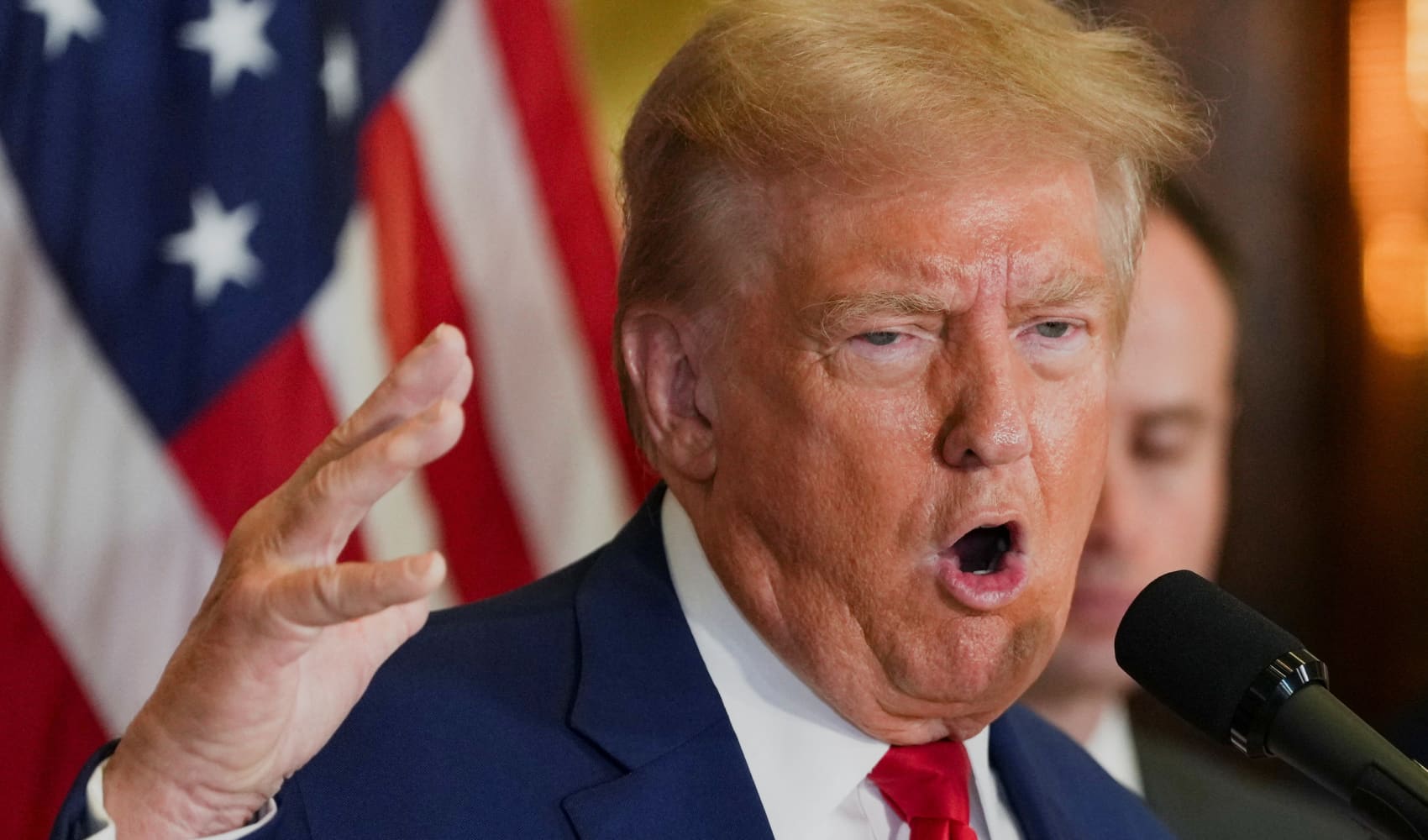
This report is from today's CNBC Daily Open, our international markets newsletter. CNBC Daily Open brings investors up to speed on everything they need to know, no matter where they are. Like what you see? You can subscribe here.
What you need to know today
Labor boost
Wall Street rallied after the latest jobless data renewed investors' faith in the U.S. economy. The S&P 500 posted its best day since November 2022, climbing 2.3%, while the Nasdaq Composite jumped 2.87%. The Dow Jones Industrial Average soared 683 points. Technology stocks, beaten on Monday, rebounded. Chipmakers Nvidia and Broadcom both jumped more than 6%. The 10-year Treasury yield hit 4% a level last seen before Friday's disappointing jobs data sent markets reeling. U.S. oil prices rose 1%.
Delta IT hit
Delta Air Lines revealed that last month's CrowdStrike outage and subsequent flight cancellations resulted in a $550 million financial blow. This includes a $380 million revenue hit due to refunds and compensation, and $170 million in operational recovery costs. The airline plans to seek damages from CrowdStrike and Microsoft while acknowledging a $50 million reduction in fuel expenses due to the cancellation of some 7,000 flights.
Job losses
Paramount Global plans to cut 15% of its U.S. workforce as it prepares for a merger with Skydance Media. Paramount has identified $500 million in cost savings, including layoffs, as part of its merger. It also said earnings surged as the company's streaming division swung to an unexpected profit — the first time Paramount has announced a profitable quarter for its direct-to-consumer business. Paramount also took a $6 billion impairment charge for its cable networks, similar to Warner Bros. Discovery's write-down. Its shares rose 5% in after-hours trade.
Blowout earnings
Eli Lilly blew past second-quarter earnings and revenue expectations and increased its full-year revenue forecast by $3 billion. The company now anticipates revenue of up to $46.6 billion, driven by booming sales of its diabetes drug Mounjaro and weight loss injection Zepbound. "We just see unbelievable demand, and we're not even trying that hard to promote this drug," Eli Lilly CEO David Ricks told CNBC. "What you're seeing is just consumer organic demand here as we've shipped more product, as we bring more supply online in the United States." Shares closed up more than 9%.
Get Tri-state area news delivered to your inbox. Sign up for NBC New York's News Headlines newsletter.
Asia ends week on high
Markets in the Asia-Pacific region are rounding out a turbulent week on a high, with Japanese stocks recouping much of Monday's huge losses. Japan's export-heavy Nikkei 225 and the broad-based Topix traded as much as 2% higher before losing steam to trade slightly lower in the afternoon. Hong Kong's Hang Seng index climbed 1.4% and mainland China's CSI 300 inched up 0.14% as consumer prices rose more than expected. Elsewhere, Australia's S&P/ASX 200 and South Korea's Kospi both traded about 1% higher.
Money Report
[PRO] Unwinding carry trades
After the sharp reversal of the Japanese yen carry trade this week, all eyes are now on the Chinese yuan. The substantial gap between U.S. interest rates and those in Japan and China has been a driving force behind these carry trades. Here's what to look out for.
The bottom line
The small-cap focused Russell 2000 Index's recent volatile performance has led Wolfe Research to conclude that its recent breakout was illusory.
"Fake breakout: confirmed," Rob Ginsberg, Wolfe Research's managing director, wrote in a note to clients on Wednesday. He explained that the small-cap index saw a 10% gain over the last three weeks, only to erase those gains almost entirely. Ginsberg warned that further declines could be on the horizon for the index.
"We have seen a series of fake breakouts over the past two+ years, but this was by far the most notable," Ginsberg added. The index, which is up 2.8% so far this year, closed 2.4% higher on Thursday.
This raises questions about the broadening of the market. Mona Manajan, Edward Jones' senior investment strategist, believes there is a shift in the market, with investors moving away from the "Magnificent Seven" tech stocks.
"We have seen a little air come out of the tires there," Manajan told CNBC. "We are seeing the start of what we are calling rotation, people perhaps taking profits from that market into the broadening theme, the cyclical value parts of the market… for this market to really work, we not only need to see the rotation, we need to see a true broadening of market leadership."
CNBC's David Faber asked how important Nvidia's upcoming earnings are for the market.
"We do think that AI is still in the early innings of a multi-year secular growth trend," Manajan said. Nvidia earnings "will be key to the trade, we think they have consistently beat. Can they consistently beat at the same pace? Maybe not."
While Wall Street rallied on the back of initial jobs claims that fell more than expected, offering some relief about the U.S. economy, not everyone is convinced.
Piper Sandler's chief global economist, Nancy Lazar, argued that the recent rise in the unemployment rate to 4.3%, might actually be underestimating the true weakness of the labor market.
Lazar points to several other labor market indicators, such as the increase in continuing jobless claims, a pessimistic consumer survey from the New York Fed and the declining quit rate in the JOLTS report, all of which suggest a weaker job market than the official unemployment rate indicates.
"The quit rate ... points to 5%+ unemployment — it always goes down in a recession," Lazar said in a note to investors.
— CNBC's Alex Harring, Jesse Pound, Hakyung Kim, Todd Haselton, Leslie Josephs, Annika Kim Constantino, Spencer Kimball, Lee Ying Shan and Evelyn Cheng contributed to this report.






